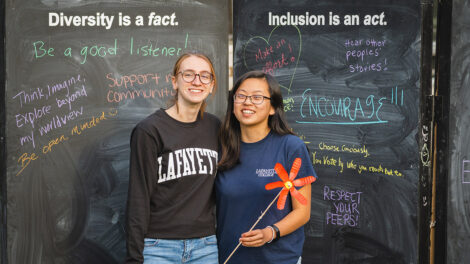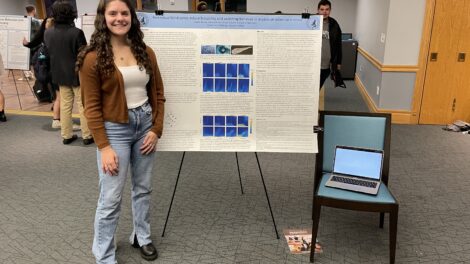Lafayette students head to U.N. for 8th International Day of Women and Girls in Science Assembly
By: Denisse Villegas ’25
Lafayette’s Engineering Division, the Hanson Center for Inclusive STEM Education, the College’s Office of Sustainability, and the Women’s, Gender and Sexuality Studies Program joined together to send eight faculty/staff members and 35 students—representing 10 nations—to the United Nations headquarters in New York City for the 8th International Day of Women and Girls in Science Assembly, held Feb. 10. The conference, which brought together women in STEM with a focus on sustainability and global impact, was interdisciplinary in nature.
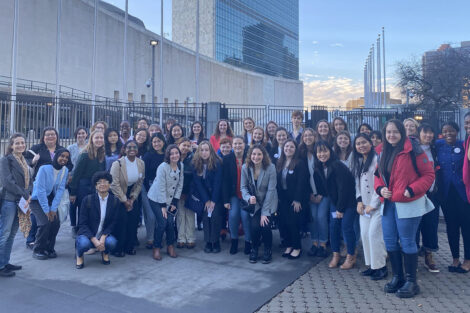
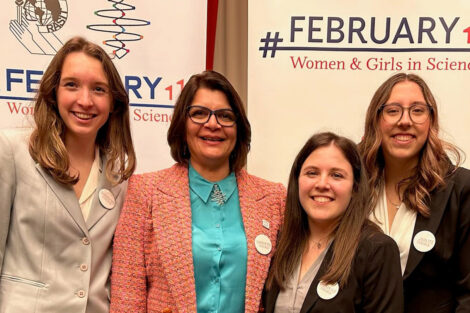
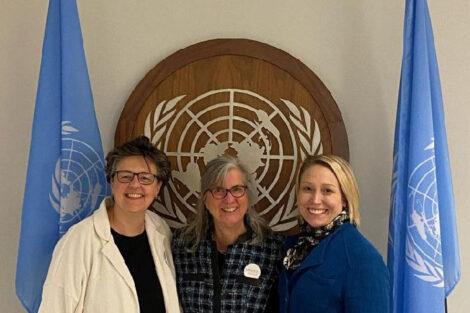
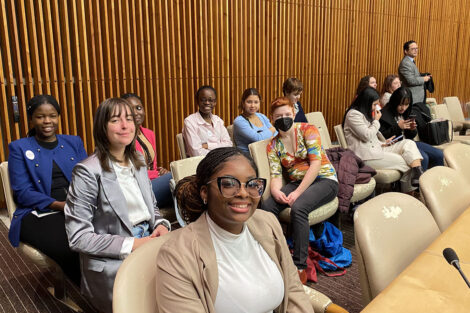
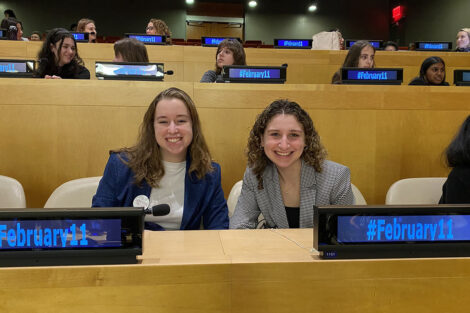
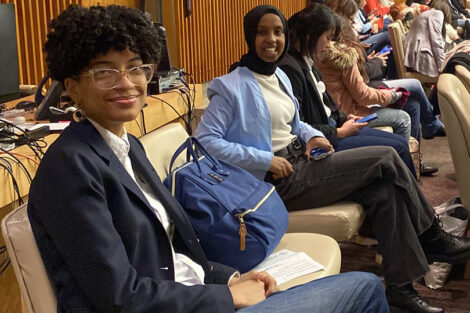
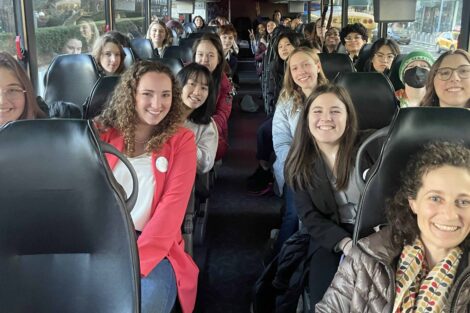
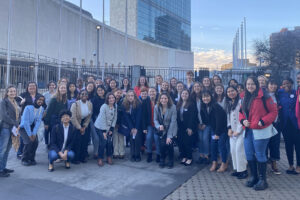
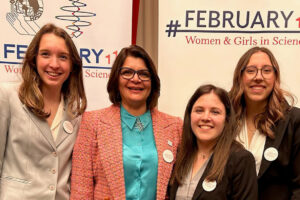
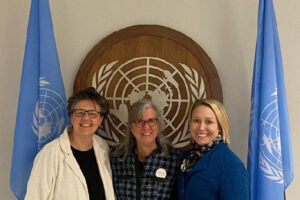
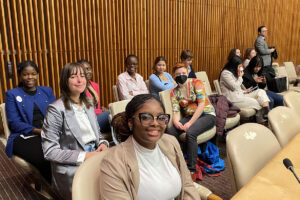
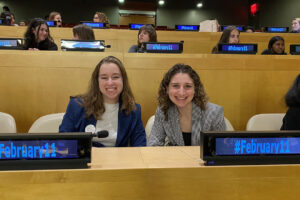
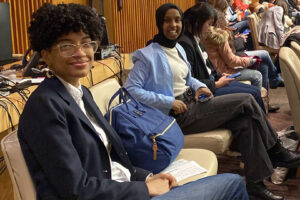
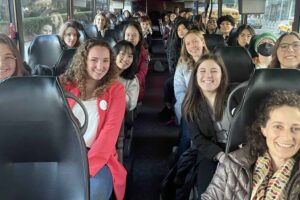
“It was an amazing opportunity for Lafayette students, faculty, and staff,” says Mary Armstrong, program chair and Charles A. Dana Professor of Women’s, Gender, and Sexuality Studies. “We got to be together in a place where incredible speakers from all over the world were addressing issues of diversity in STEM and sustainability, and trying to think together about ways to make a difference and bring women and girls into the solution.”
There was a focus within the conference on addressing a variety of challenges, from transportation and sustainable cities to disabilities and sustainable spaces. Experts discussed the factors that play a role in the way women and girls have not been centered in solutions to many of these problems despite the contributions they could make. The conference underscored that “there really couldn’t be a just, decarbonized, equitable future without women and girls being at the center of those solutions,” says Delicia Nahman, Lafayette’s sustainability director.
“It was very interesting to hear how different countries, nonprofits, institutions of higher education, and others were thinking about the solutions within their own cultural contexts,” Nahman says. “For many students, it may in fact have been the first time they were getting these global contexts from representatives from these countries and nonprofits themselves. Hearing the solutions through those lenses was of real value.”
“The U.N. conference was a really amazing experience to be able to be in a room full of women in different professions: researchers, important embassies, and important figures from different countries,” says Akeena Hall ’26, computer science and Africana studies double major. “The speakers were talking about their progress toward sustainable development goals for the U.N., and how they have actively worked with different initiatives to create inclusion in STEM for women and other diverse groups.”
Amiira Aden ’25, civil engineering major, also found the experience valuable: “One thing I found interesting was that the conference did not heavily focus on the U.S. situation, but it was global with different people from different countries. The speakers would talk about an issue in their countries and how they bring about sustainability. It was very mind-opening, since we were able to get different perspectives from a variety of areas.”
Through this trip, it was evident that many of these complex issues require a combination of teamwork and interdisciplinary approaches “where people from sustainability talk to people from women’s, gender, and sexuality studies in an engineering context, thinking about inclusivity,” Armstrong says.
